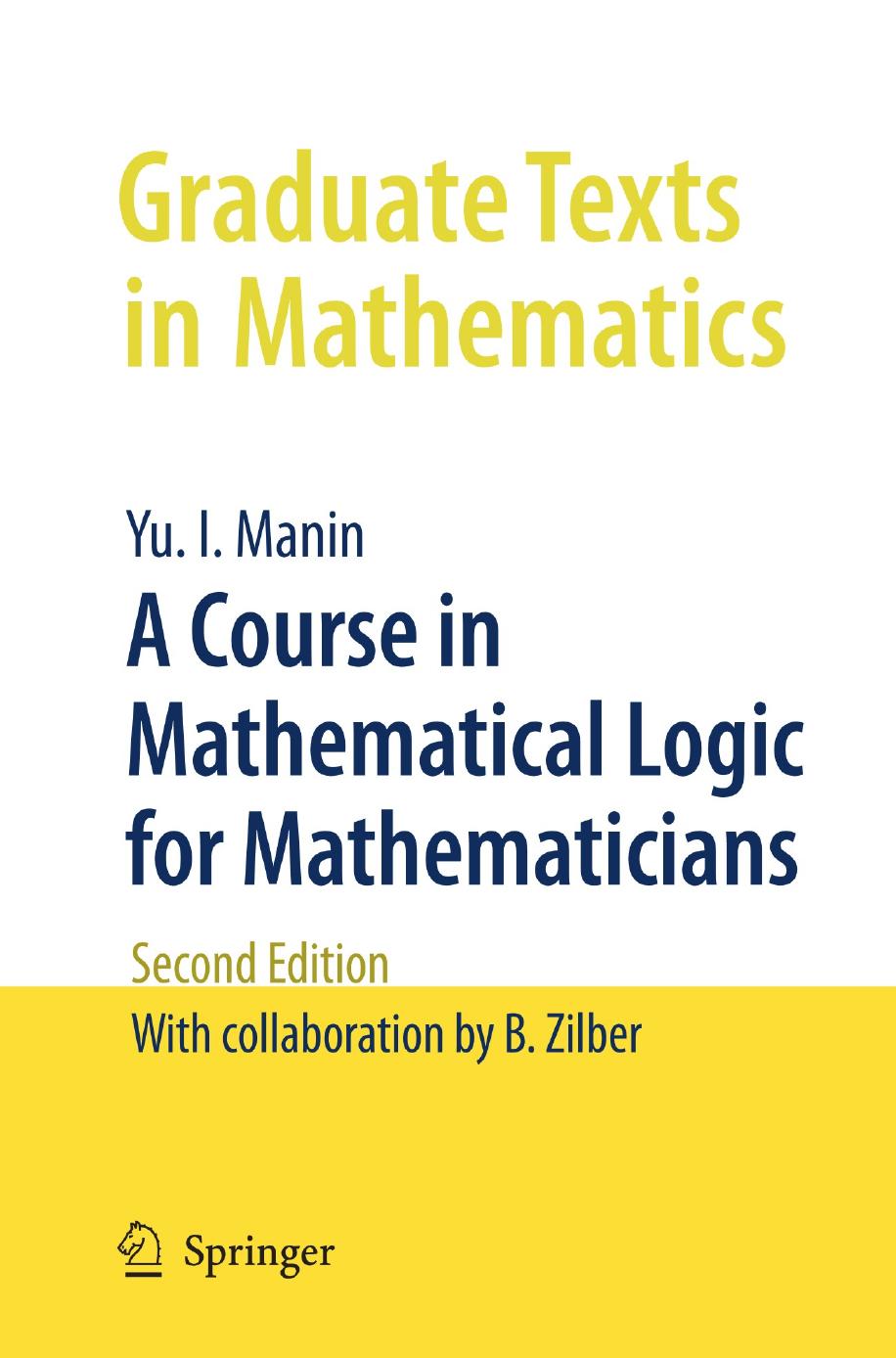

Most ebook files are in PDF format, so you can easily read them using various software such as Foxit Reader or directly on the Google Chrome browser.
Some ebook files are released by publishers in other formats such as .awz, .mobi, .epub, .fb2, etc. You may need to install specific software to read these formats on mobile/PC, such as Calibre.
Please read the tutorial at this link: https://ebookbell.com/faq
We offer FREE conversion to the popular formats you request; however, this may take some time. Therefore, right after payment, please email us, and we will try to provide the service as quickly as possible.
For some exceptional file formats or broken links (if any), please refrain from opening any disputes. Instead, email us first, and we will try to assist within a maximum of 6 hours.
EbookBell Team

5.0
58 reviewsMathematics Subject Classification (2000): • 03-XX Mathematical logic and foundations • 03-01 Introductory exposition (textbooks, tutorial papers, etc.) pertaining to mathematical logic and foundations
1. The first edition of this book was published in 1977. The text has been well received and is still used, although it has been out of print for some time. In the intervening three decades, a lot of interesting things have happened to mathematical logic: • (i) Model theory has shown that insights acquired in the study of formal languages could be used fruitfully in solving old problems of conventional mathematics. • (ii) Mathematics has been and is moving with growing acceleration from the set-theoretic language of structures to the language and intuition of (higher) categories, leaving behind old concerns about infinities: a new view of foundations is now emerging. • (iii) Computer science, a no-nonsense child of the abstract computability theory, has been creatively dealing with old challenges and providing new ones, such as the P/NP problem. Planning additional chapters for this second edition, I have decided to focus on model theory, the conspicuous absence of which in the first edition was noted in several reviews, and the theory of computation, including its categorical and quantum aspects.
The whole Part IV: Model Theory, is new. I am very grateful to Boris I. Zilber, who kindly agreed to write it. It may be read directly after Chapter II.
The contents of the first edition are basically reproduced here as Chapters I–VIII. Section IV.7, on the cardinality of the continuum, is completed by Section IV.7.3, discussing H. Woodin's discovery.
The new Chapter IX: Constructive Universe and Computation, was written especially for this edition, and I tried to demonstrate in it some basics of categorical thinking in the context of mathematical logic.